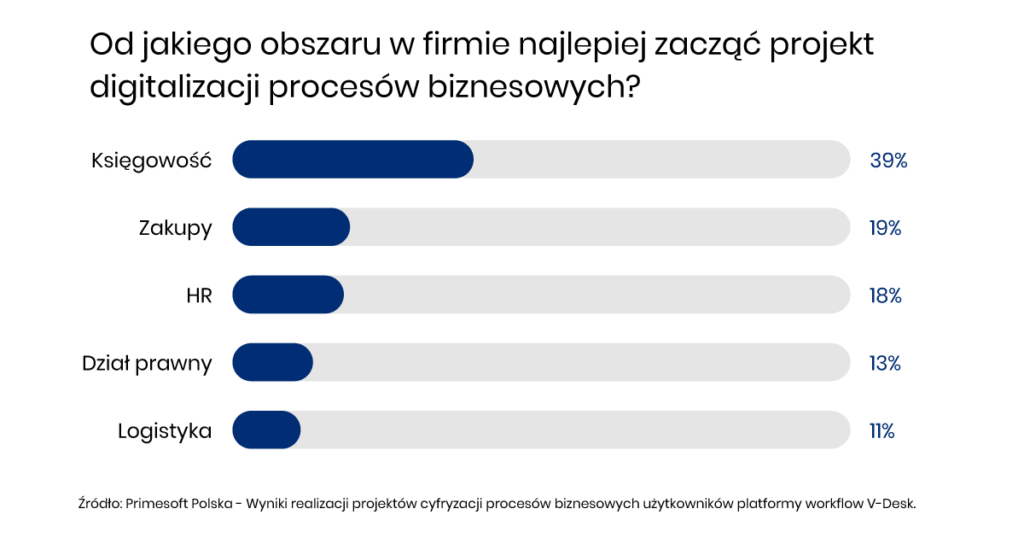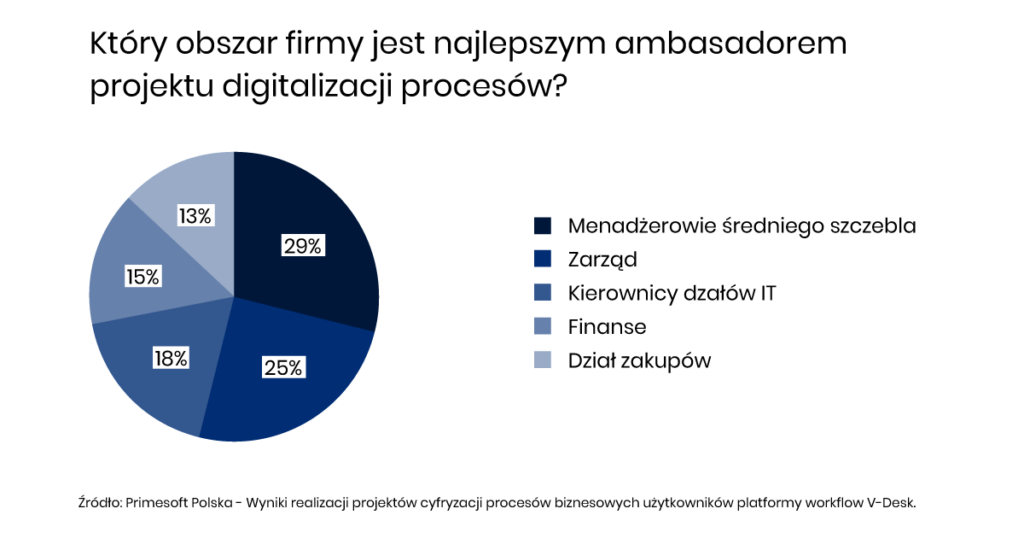An interview with Filip Kolendo, Vice President of Primesoft Poland. Lots of interesting information about the accelerating digitization of Polish businesses, the digitization of workflows and the future of remote work.

Filip Kolendo is an IT manager with extensive knowledge in modern and advanced technologies, efficient and effective production and implementation of IT systems. An enthusiast of technological innovations and out-of-the-box and innovative management methods.
At Primesoft, he is responsible for the creation and development of V-Desk software and other products developed in-house, i.e. OCR by Primesoft, ArthurDoc, V-Room, Scan&Paste and Aztec Reader. He has extensive experience and rare knowledge in the field of implementation project management (he has implemented projects for: GETIN Noble Bank S.A., Volkswagen Bank S.A., Vistula Group S.A., the Polish Bank Association, MPWiK S.A., the Poznań International Fair, SGB Bank S.A., the Uniqa Group, the European Leasing Fund S.A., as well as for many companies that are world leaders in their industries).
He is currently leading projects related to the expansion of Primesoft products into foreign markets.
How has the pandemic affected the implementation of digital solutions in Polish companies?
Clearly, many companies, as a result of the pandemic, have accelerated their efforts to digitize key business areas involving strategic processes and workflows. The pandemic, and the associated need to work remotely, has made executives realize that there is no escape from finding the right system solutions to digitize operations. We need solutions that guarantee the continuity of business operations and eliminate the barriers that accompany their operation in the virtual world. BPM, DMS and Workflow class software platforms are the main components of remote work, which will allow any organization to seamlessly transfer business processes from the office to the home office. Companies using this type of solution so far have survived the pandemic much more smoothly and safely than those that did not make the transition.
Are Polish companies eager to implement change and ready for digitization?
Research [1] shows that 78% of Poland’s large and medium-sized companies are in the process of digital transformation. In contrast, 92% of managers highlight cost optimization as the main visible benefit of digitization. The pandemic has accelerated the digital transformation in many companies, and moreover, in many companies it has become the reason for starting it. I believe that thanks to digital transformation, many companies will quickly recover from the pandemic. For some, it is an opportunity, for others a necessity, and for others a tool for making changes to get ahead and beat the competition.
Is it a difficult change?
In our projects where we implement tools to enable digital transformation, we more often than not encounter a positive perception of the coming change. Users are very quick to see the benefits of digitizing and automating workflows, so decisions are often made to expand the scope of this transformation. Every change raises concerns, but even if it is a digital transformation, however, people always come first.

In what areas of the company’s operations are digital solutions and workflow automation being implemented?
The main areas with the highest degree of digitization are the accounting, purchasing and HR departments.
Further down, according to our observation, the need is high in the areas of customer relationship building (CRM) and contacts between employees (Intranet).
Digitization also extends to the legal, logistics and marketing departments.
Who is most often responsible for the process of conducting digitization?
The board and executive level is where the need, the business case, comes from. As a rule, the process of change does not include only digitization (e.g., the replacement of paper documents with electronic documents), but extends to real changes in business processes. In our experience, often the unit responsible for carrying out the implementation of digital solutions is the IT team. Executives are increasingly recognizing the need to automate processes, seeing the benefits: easy and secure access to information, increased work efficiency, cost optimization, faster task completion. It often happens that after the first areas are digitized, employees themselves come up with the initiative to carry out the automation of further workflows. This is always a motivating response for us.

What other benefits are gained by Polish companies that have decided to introduce digital solutions?
The implementation of solutions that enable digitization and automation of work, such as complex systems of the BPM | DMS |Workflow class, is largely a factor of development, and thus maintaining competitiveness. We see that Polish companies have overcome barriers and are creating an organizational culture that is open to change and innovation. It seems that automation is a key benefit – activities that were previously performed manually by employees can become fully automated processes thanks to digitization and available solutions, and this is followed by optimization of work efficiency, better internal communication, and data security. The benefits are many, but it is necessary to take that first step.
Convincing anyone is probably no longer necessary. But where should you start looking for the right solutions?
A very good solution is the V-Desk platform from Primesoft Poland. We deal extensively with Enterprise-class solutions related to business process management. We are a provider of dedicated tools enabling digital transformation. We help analyze and streamline processes, provide digital tools, often installed in the cloud, to facilitate online work, and increase employee productivity as our solutions accelerate and streamline their work.
[1] Study: “BARRIERS & TRENDS. The technological transformation of companies in Poland from a human/employee/consumer perspective”. Gfk on behalf of the Humanites Institute.



